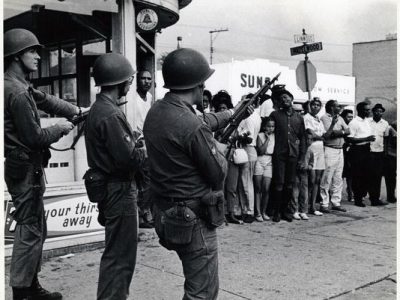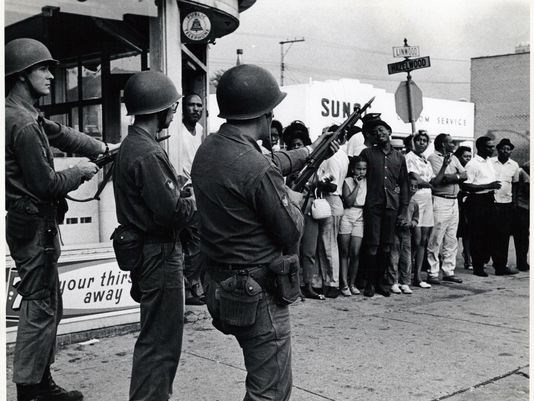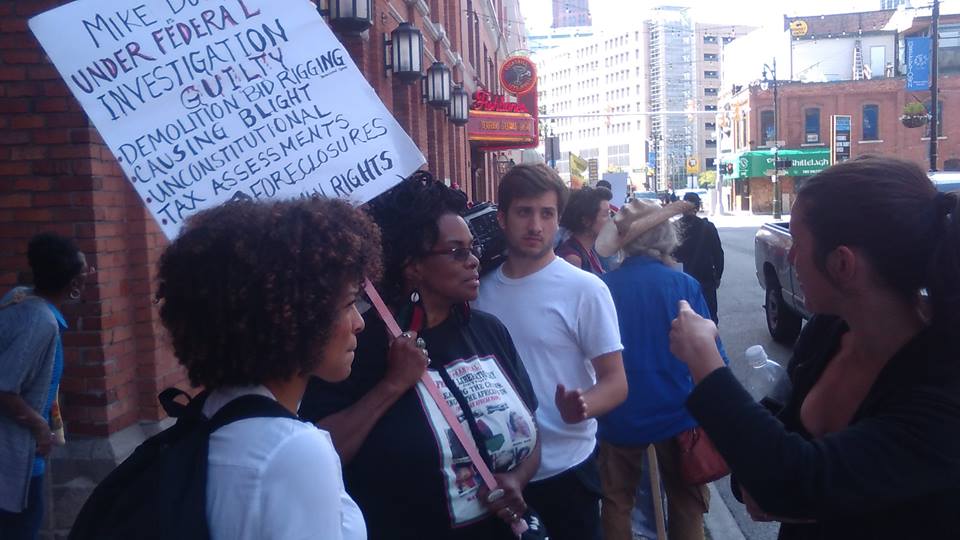The “Housing Question” in Detroit and throughout the United States
Reflections on Five Decades Since the Passage of the Fair Housing Act of 1968. Moratorium NOW! Coalition committed to the realization of housing for all

This address was delivered at the Wayne State University Labor Studies Center Conference “Workers in Solidarity and Education (WISE)” held on Saturday October 6, 2018 at the Greektown Casino Hotel in downtown Detroit.
***
One of the most important issues in the city of Detroit and throughout the United States is centered on what many progressive forces call the Housing Question.
This has been a major concern since the rise of industrial capitalism during the early decades of the 19th century.
Frederich Engels wrote extensively on the problems of the working class under the early phase of industrialization during the period from the mid-1840s through the 1880s in both England and the U.S. (See this)
With the dispersal of peasants and farmers from large agricultural estates in Europe and later in the U.S., particularly in the aftermath of the Civil War during 1861-1865 where four million enslaved Africans were dislocated from the system of human bondage, a fundamental problem has been the stabilization of people through gainful employment and settlement in decent living quarters. In modern times in the 20th century when there was the advent of mass production of steel and automobiles after 1908, a larger crisis of migration into urban areas rendered many to the mercy of unscrupulous landlords and municipal administrations which oftentimes served the captains of industry and finance capital and not the workers, a situation which left millions in tenements and slums.
Detroit July 1967 Rebellion on Linwood at Hazelwood where the masses confronted the National Guard
It is important to consider what has been described as a “split labor market” in U.S. industry where in order to keep the proletariat divided institutional racism which grew out of the slave system was utilized to encourage the profitable functioning of the capitalist mode of production and social relations. In Detroit we saw the wave of housing patterns where the ruling class, which was exclusively European American, moving into an area, then followed by poor and working class populations of the same race, ending with African Americans.
After the deterioration and destruction of the inherited African American communities in the latter one-third of the 20th century, a direct result of federally-supported housing policy, we are today living with the reality of the suburbanization of urban areas and the further marginalization of the Black poor and working people in the city. Of course, in the second decade of the 21st century there is reversal of this process, where the wealthy and more affluent among the population, who are largely European American once again, are reclaiming some sections of the downtown and central city, where in effect the African Americans and working class in general are being once again dislocated.
Origins of the Contemporary Crises of Housing, Water and Education
Many people are aware of the social movements of the 1950s and 1960s which led to the passage of the Civil Rights Act of 1964 and the Voting Rights Act of 1965. A coalition led by African Americans and supported by the labor movement was able to force these two major pieces of legislation through Congress.
However, it is important to recognize that as early as 1866 there was the adoption by the U.S. Congress in the aftermath of Civil War and the demise of chattel slavery, a Civil Rights Act which provided for many of the same guarantees as the 1957 and 1964 legislation. In fact the Emancipation Proclamation had been issued by President Abraham Lincoln in 1863. Two years later the 13th Amendment to the Constitution was passed by Congress ostensibly ending involuntary servitude except for those incarcerated, which has been a major problem for African Americans since the period of the latter 19th century.
There were additional Civil Rights Acts passed by Congress notwithstanding the 14th Amendment purportedly guaranteeing the right to citizenship in 1868 and the 15th Amendment upholding the right to vote after 1870. Finally there was the Civil Rights Act of 1875, the last of such legislation during the Reconstruction era, which was supposedly geared towards providing protection by the federal government to enforce existing Civil Rights legislation.
This Civil Rights Act of 1875 signed into law by President Ulysses Grant, was largely rejected by the majority white population of the period. Only eightyears later, in the aftermath of the collapse of Federal Reconstruction, the law was overturned by the U.S. Supreme Court in an 8-1 ruling. One source described this ruling as following: “The Supreme Court, in an 8–1 decision, declared sections of the act unconstitutional in the Civil Rights Cases on October 15, 1883. Justice John Marshall Harlan provided the lone dissent. The Court held the Equal Protection Clause within the Fourteenth Amendment prohibits discrimination by the state and local government, but it does not give the federal government the power to prohibit discrimination by private individuals and organizations. The Court also held that the Thirteenth Amendment was meant to eliminate “the badge of slavery,” but not to prohibit racial discrimination in public accommodations. The Civil Rights Act of 1875 was the last federal civil rights bill signed into law until the Civil Rights Act of 1957, enacted during the Civil Rights Movement.” (See this)
The Civil Rights Cases ruling of 1883 was a response to African Americans who had brought suit in the federal courts demanding the prohibition of legalized segregation in public accommodations. Moreover, some thirteen years later, the Supreme Court in the infamous Plessy v. Ferguson Case, ruled that separate but equal was legal under the Constitution, therefore making segregation or Jim Crow the highest law of the land.
It seems ironic in a minimal sense that these same forms of legislation in the area of Civil Rights law needed re-passage again beginning in 1957 and ending in 1968. It is important to point out where the reversal was initiated in the 20th century being the failure of the Civil Rights Act of 1966 which was defeated by the Senate in an alliance of both Republican and Democratic politicians.
According to the CQ Almanac, the Civil Rights Act of 1966 failed due to the reaction of the period to the pressure put forward by African Americans and their allies calling for the elimination of discrimination in housing policy. According to a summary of this legislative struggle:
“The Civil Rights Act of 1966 (HR 14765) was not a complicated measure, at least compared to its predecessors of 1964 and 1965. But in its Title IV–the open housing provision–lay the seeds of its own destruction. As introduced, Title IV barred racial discrimination in the sale and rental of all housing. The rest of the bill was far less controversial: as introduced, it barred racial discrimination in the selection of federal and state jurors, empowered the Attorney General to initiate desegregation suits and protected civil rights workers. The House added provisions empowering the Attorney General to enjoin actions depriving persons of their rights and prohibiting interstate travel for the purpose of inciting riot.” (See this)
The final portion of the above-mentioned clause reveals the underlying and obvious reason for its failure: the advent of urban rebellions in cities across the U.S. and increasing militancy on the part of the African American people. Although the Fair Housing Act of 1968 was passed in the days following the assassination of Dr. Martin Luther King, Jr. in April of that year, the clause related to prohibiting interstate travel aimed at causing rebellion was embedded in the legislation.
Moreover, as it relates to the actual history of the U.S. over the 50 years since the martyrdom of Dr. King, the federal government has failed to enforce the Fair Housing Act based upon the character of the crisis in the 21st century. For it was the African American people who have since 2008 (the Great Recession) bore the brunt of the subprime mortgage debacle which led to millions of home foreclosures and the consequent theft of the majority of the limited wealth accrued by the Black people, i.e., home ownership. African Americans have not recovered from this bank-engineered collapse of the housing sector. We can see the residual effects of the housing crisis in Detroit with the de-population of the municipality and the destruction of communities the city.
Founding of the Moratorium NOW! Coalition to Stop Foreclosures and Evictions
Our organization was formed in the midst of the housing crisis of 2008. We had taken up this issues in 2007 under the banner of the Michigan Emergency Committee Against War & Injustice (MECAWI) when it was quite obvious that the city, state and federal governments were not willing to take on the banks for their systematic criminal conspiracies to make mega-profits at the expense of the working and poor masses.
Detroit Demonstration at Wayne County Treasurer on Sept. 5, 2017
The financial crisis in Detroit worsened after 2007 due to the state’s facilitation of the financial industry exploitative and racist policies. We demanded an immediate moratorium on foreclosures and evictions in order to keep people in their homes. If this measure had been adopted it would have gone a long way to preserving African American communities in Detroit and across the U.S. We cited that there was federal legal precedent for such action by municipal, state and federal governmental structures based upon the Supreme Court ruling Home Building and Loan v. Blaisdell of 1934 which originated in Minnesota which had adopted a Mortgage Moratorium Law to protect the rights of home owners and farmers during the Great Depression of the 1930s.
Oyez website describes the historic character of the ruling as follows: “In an opinion authored by Justice Charles Hughes, the Court held that the law did not violate the Constitution. The court reasoned that there are limitations on the doctrine embedded in the Contracts Clause (Section 10 of Article I). There may be a public need to restrain private rights to further the public interest when there is an emergency. The Framers of the Constitution could not have foreseen all possible modern problems, so the Constitution should not be interpreted in too rigid a way to allow for responding to them. This statute met the relevant five-factor test because there was a genuine emergency, the legislation was designed to help the public in general, the relief was narrowly tailored to the problem, the mortgagor’s interests were not seriously undermined, and the legislation is temporary. Since the demands of the Great Depression were vital to all of the state’s citizens, the Court held the law was a legitimate use of Minnesota’s police power.” (See this)
Since 2008, we have fought for the enforcement of this legal principle. However, the actual meaning of our work extends beyond legal precedent. We are challenging the notion of the inherent right of financial institutions to collect debt which they claim is owed by working people and the nationally oppressed. We begin with the premise that housing is a fundamental human and civil right irrespective of the interest of capital. This is a revolutionary idea within the capitalist system where the notion of private property for the ruling class is sacrosanct. Nevertheless, the “private property” of the workers and oppressed are not subject to this same principle under capitalism as evidenced by the loss of billions in real wealth by the African American people among others over the decades.
This same contradiction was at the root of the imposition of emergency management and bankruptcy in Detroit, Flint, Inkster, Benton Harbor and other majority African American populated urban areas of Michigan in this present century. It was the public sector and its employees who were forced to compensate the wealthiest financial institutions in contravention to its own interests as a class. Today in the era of the “repurposing” of Detroit and other cities in Michigan, tax revenue which should go towards a second or perhaps third Reconstruction are funneled to the wealthiest in society for their prestige projects guaranteeing profitably and political power.
Alliance Building and Independent Self-Organization
Finally we are committed to building alliances around these important issues. We are willing to work with all honest forces in the struggle for genuine democracy, self-determination and full equality.
Moreover, the Moratorium NOW! Coalition believes in self-reliance and independent organizational initiatives. We know that the ruling class and their agents are not going to finance our liberation struggle. Hence we have been far more successful in reaching our objectives than those who cannot conduct political work outside the framework of the parameters laid down by the ruling class and its surrogates in government.
Ultimately we want to transform society as a whole to reflect the interests of the majority of working and oppressive people. There must be guarantees related to housing, water rights, environmental justice, education and the right to organize.
Only under these conditions can there be the realization of a just existence for African Americans, people of color and the working class as a whole.
*
Author’s Note: This address was delivered at the Wayne State University Labor Studies Center Conference “Workers in Solidarity and Education (WISE)” held on Saturday October 6, 2018 at the Greektown Casino Hotel in downtown Detroit. Azikiwe discussed the role of the Moratorium NOW! Coalition in response to the housing crisis in the city since the Great Recession of a decade ago and its lingering aftermath. The author reviewed the historical legacy of national oppression and class exploitation which are at the base of the crises of housing instability along with other structural issues plaguing municipalities throughout the United States. According to its website: “The Labor Studies Center at Wayne State University has created the WISE conference series that is committed to the teaching and learning of workers through innovative and advanced labor education programs. Our WISE educational events focus on empowering workers by strengthening highly sought after skills including leadership, communication and strategic planning. WISE@Wayne conferences will also provide the space for workers from various industries, occupations, experiences and backgrounds to connect through common struggles and identify effective strategies that build solidarity and power in their workplaces, unions and communities.” The panel in which Azikiwe spoke was entitled: “Building Bridges: Advancing Social Justice Unionism Through Labor History and Civil Rights Education.”
Note to readers: please click the share buttons above. Forward this article to your email lists. Crosspost on your blog site, internet forums. etc.
Abayomi Azikiwe is the editor of Pan-African News Wire. He is a frequent contributor to Global Research.
All images are from the author.



